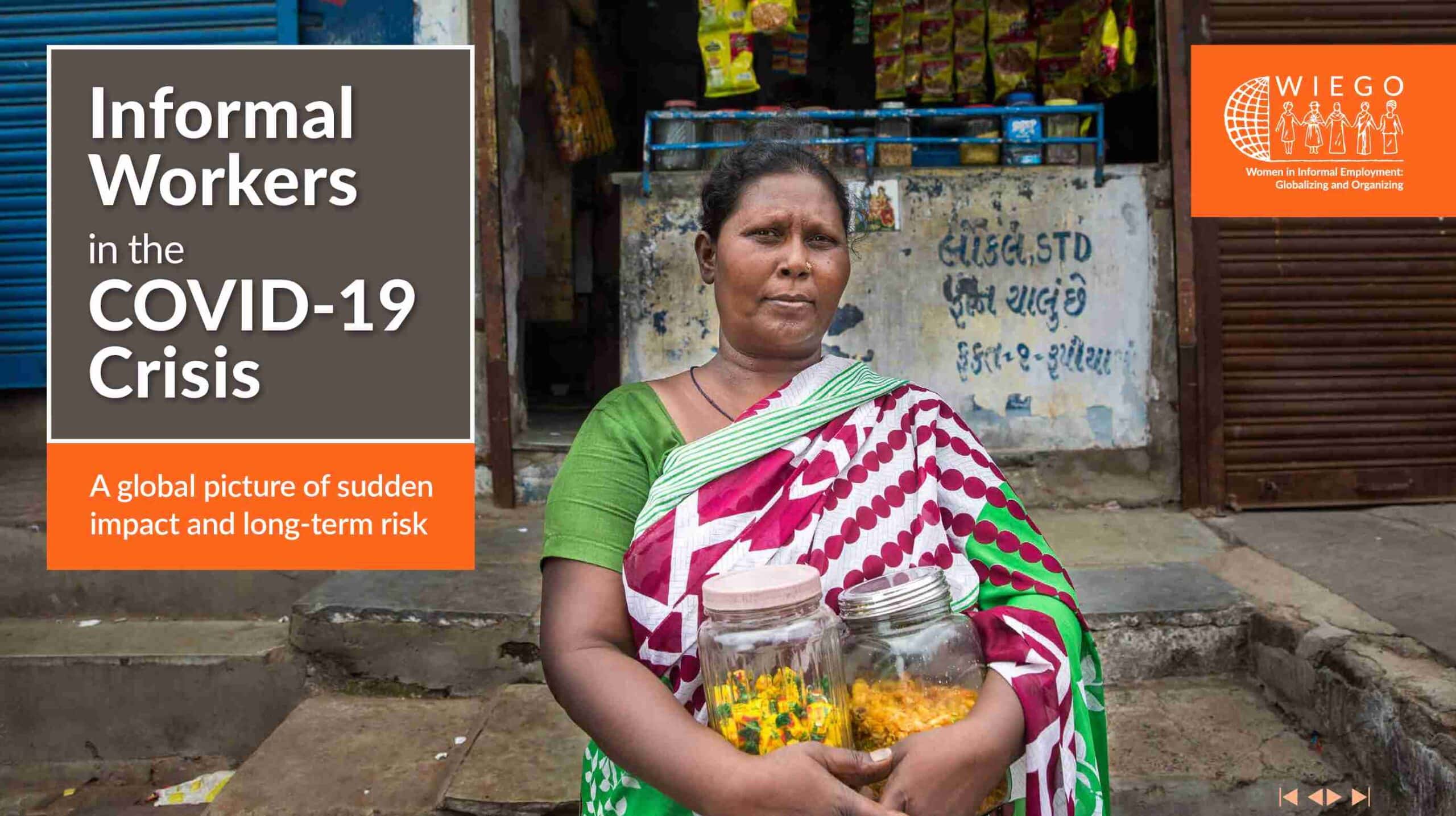Informal Workers in the COVID-19 Crisis: A global picture of sudden impact and long-term risk
In an immediate response to COVID-19, WIEGO conducted a rapid assessment to understand how the pandemic and the related public health measures were affecting informal workers in Africa, Asia and Latin America. The impact on informal workers’ livelihoods was sudden and severe, and in many cases, lead to a permanent loss of income.
In photographs and text, this e-book shows the global picture WIEGO found, the health risks and responses, and the mobilization and organization by civil society, governments and others.
In one example, WIEGO collaborated with public health professionals and worker organizations in Brazil and South Africa to develop sector-specific health and hygiene guidelines for waste pickers and street vendors – groups of workers who had, in some places, been designated as essential workers. This initiative served to fill the gap left by international COVID-19 health advice that was not well suited to low-income contexts. All WIEGO’s guidelines, shown in this e-book, were translated into many languages and designed to be shareable in hardcopy and electronically.
The pandemic highlights the need for both immediate relief to protect informal workers and a long-term economic and social plan that integrates livelihood recovery with stronger and more equal labour and social protection for informal workers. This e-book concludes with a call for long-term interventions that combine work security with social security for all.
This e-book is available in French and Spanish.

More about informal workers in different sectors
- WASTE PICKERS: Essential Service Providers at Risk
- HOME-BASED WORKERS Face a New Kind of Isolation
- DOMESTIC WORKERS: Frontline Care Workers at Risk
- STREET VENDORS: Essential Goods and Urgent Needs
View list of all: Advocacy Materials

